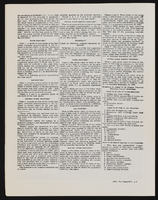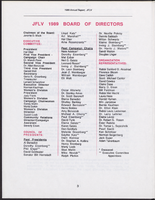Search the Special Collections and Archives Portal
Search Results

Transcript of interview with Pauleen Foutz by Don Scott Kaye, February 25, 1980
Date
Archival Collection
Description
Text
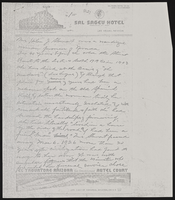
Stewart family histories
Date
Archival Collection
Description
Stewart family histories
Text
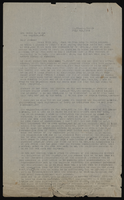
Correspondence, Levi Syphus to Sadie George
Date
Archival Collection
Description
Text
Audio clip from interview with Bess Rosenberg by Jerry Masini, November 12, 1975
Date
Archival Collection
Description
Part of an interview with Bess Rosenberg on November 12, 1975. In this clip, Rosenberg discusses her decision to move to Las Vegas and what her life was like.
Sound

Mirtha Rojas oral history interview: transcript
Date
Archival Collection
Description
Oral history interview with Mirtha Rojas conducted by Marcela Rodriguez-Campo on December 6, 2018 the Latinx Voices of Southern Nevada Oral History Project. Mirtha talks about her artistic upbringing in Cuba and how she immigrated to the Florida with her brother. She talks about relocating to Las Vegas in 2000, her membership with the Culinary Workers Union Local 226, and her employment as a guest room attendant and shop steward at the Aria Hotel and Casino.
Text
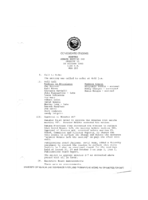
Meeting minutes for Consolidated Student Senate, University of Nevada, Las Vegas, October 18, 1983
Date
Archival Collection
Description
Text
Punam Mathur (Elaine Wynn Foundation) oral history interview conducted by Kelliann Beavers and Elia Del Carmen Solano-Patricio: transcript
Date
Archival Collection
Description
From the Lincy Institute "Perspectives from the COVID-19 Pandemic" Oral History Project (MS-01178) -- Community organization interviews file.
Text

Transcript of interview with George Gilbert by Ruth Guidi, February 10, 1975
Date
Archival Collection
Description
On February 10, 1975, Ruth Guidi interviewed George Gilbert (born 1931 in Southgate, California) about his life in Nevada. George first talks about his education in Las Vegas and his family background. He also talks about times during World War II, the shopping facilities available to those in Las Vegas, the casinos that existed, the churches that were built, and the Helldorado parades. The two also discuss social clubs, politics, the atomic testing, environmental and social changes, the Mormon Fort, Hoover Dam, and the first movie theaters.
Text

